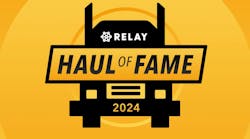The Federal Highway Administration (FHWA) has set a goal of reducing truck-related fatal accidents by 50% within ten years. With some of the strongest safety records in the industry, private fleets have a great deal to contribute to this initiative. Our government would do well to study private fleet safety practices, and use the “best of the best” to shape future regulatory reform.
The National Private Truck Council (NPTC) proposes an industry-led initiative. We believe the federal government should endorse and financially support a long-term study of the safety practices of private truck fleets.
Why just private fleets? Simply put, as a sector of trucking, private fleets are among the best safety practitioners around.
With the latest technology and equipment, the best drivers and maintenance protocols, and the top transportation professionals in the business, their built-in safety margins are easily many times greater than those required by prevailing legal safety standards or government regulations.
Private fleets continue to raise the bar of safety voluntarily. In the interest of protecting the brand name of their vehicles, the safety of their drivers, the general public and the cargo onboard, private fleets stay focused on continuous improvement.
But their story is the best-kept secret in trucking. The safety practices of private fleets are unknown to the public and often overlooked or ignored by government and the press.
When major truck accidents hit the news, the anti-truck crowd leads a parade of protest with media microphones in tow, with nary a suggestion that safe truck operators even exist. This reinforces public perception of trucking as a menace to society.
The study we're proposing would begin to change this dismal pattern. Government-funded research would identify and analyze the benchmarking safety practices of representative private fleets on a yearly basis. Under the rules of engagement, which would be jeopardy-free, these companies would volunteer proprietary safety information and performance data from their internal operations. Factors used in selecting fleets for the study would include geographic location, size, scope and nature of primary business activity.
The research would be conducted as part of a joint venture between NPTC and the Truck Renting and Leasing Assn. (TRALA). Our unique memberships of private fleet operations and lease franchise networks, respectively, oversee hundreds of thousands of drivers and vehicles each day in highly controlled environments.
This study would have several long-term outcomes, including sharing of safety information, development of safety templates, an incentive reward system and positive public recognition.
Too often industries wait for Washington to act, which forces them to respond defensively. This study goes on offense and represents a more pro-active approach. It would get our message out, front and center: Being the best is simply business as usual for private fleets.
The proposed study is a solution-based approach to a serious problem that affects us all. Using advances in the private sector to develop incentive-based federal safety regulations could give new meaning to the term “public-private partnership.”
Private fleets stand ready to roll.
Gary Petty is president and CEO of NPTC. His column will appear monthly in FLEET OWNER.


